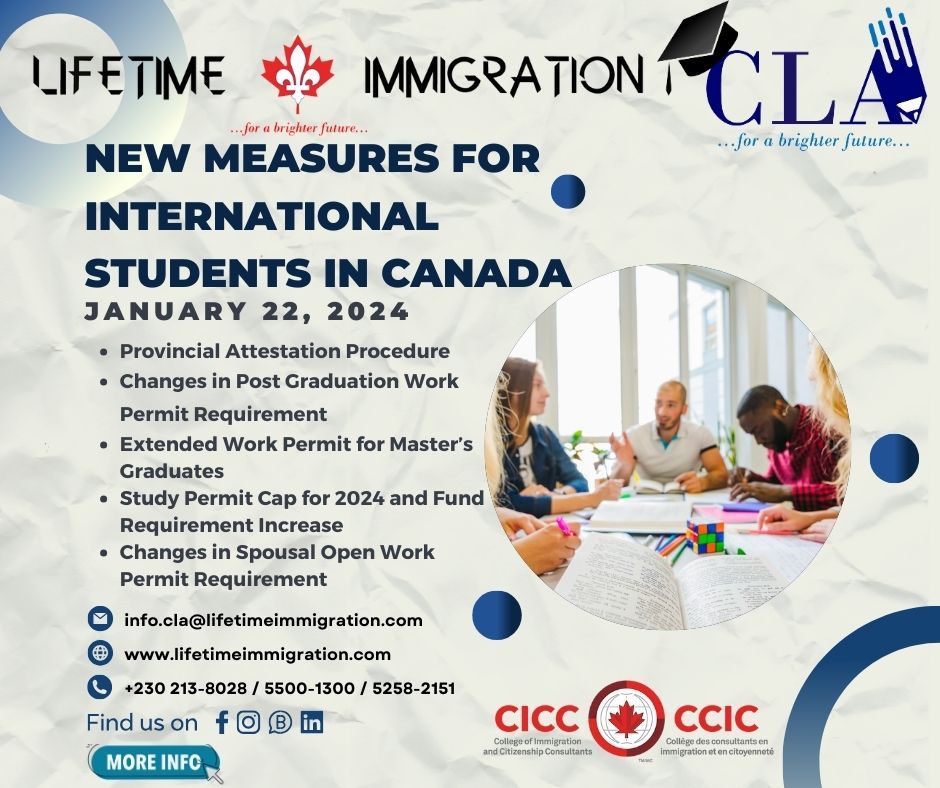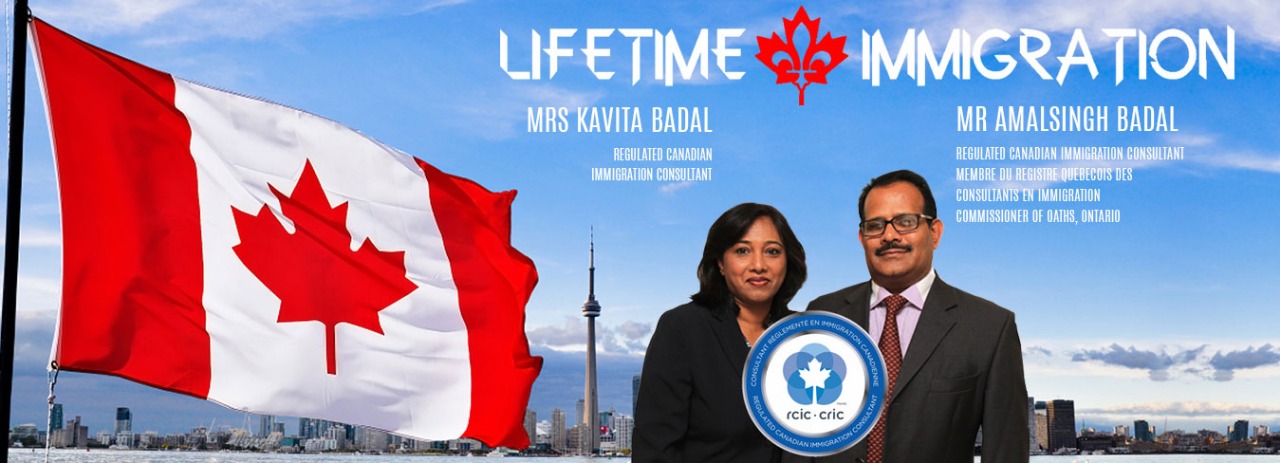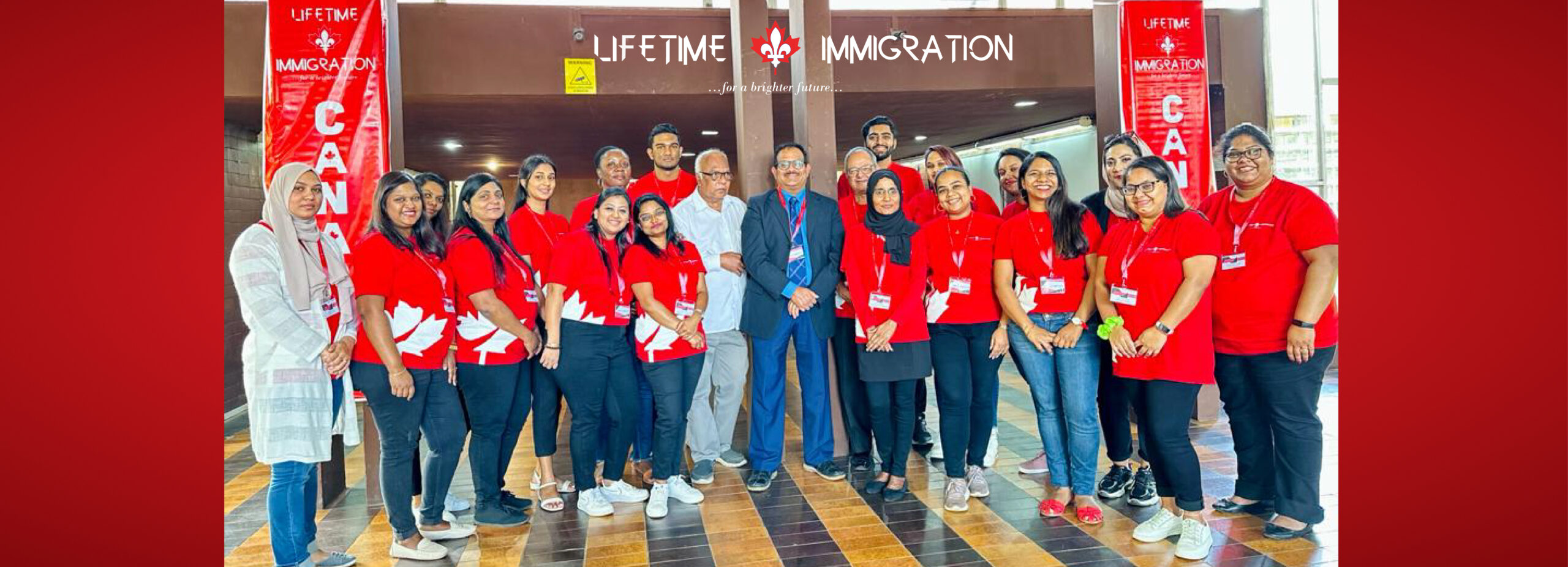
Canada Introduces Measures to Control International Student Numbers
January 22, 2024—Ottawa
International students play a vital role in enhancing our communities and contributing significantly to Canada’s social, cultural, and economic landscape. However, recent years have seen challenges to the integrity of the international student system. Some institutions have excessively increased student admissions for financial gains, leading to a lack of necessary support for these students. The surge in international student numbers has also strained housing, healthcare, and other services. In a commitment to safeguard international students from unscrupulous practices and promote sustainable population growth, the Canadian government is implementing measures to stabilize the influx of international students.
The Honorable Marc Miller, Minister of Immigration, Refugees, and Citizenship, announced today that the Government of Canada will impose a cap on international student permit applications to manage growth over the next two years. The cap for 2024 is set at approximately 360,000 approved study permits, marking a 35% reduction from 2023. In a fair approach, individual provincial and territorial caps have been established based on population, resulting in more substantial decreases in provinces with unsustainable growth.
The cap does not affect study permit renewals, and those pursuing master’s and doctoral degrees, as well as elementary and secondary education, are exempt. Current study permit holders remain unaffected. To implement the cap, starting January 22, 2024, each study permit application submitted to IRCC will require an attestation letter from a province or territory. Provinces and territories are expected to establish a process for issuing these letters to students by March 31, 2024.
These temporary measures will be effective for two years, with a reassessment of new study permit applications for 2025 at the end of this period. The government will collaborate with provinces, territories, learning institutions, and education stakeholders to develop a sustainable path for international students, including finalizing a recognized institution framework and determining long-term sustainable levels.
In alignment with the Post-Graduation Work Permit Program, eligibility criteria will change as of September 1, 2024:
- Starting September 1, 2024, international students who begin a study program that is part of a curriculum licensing arrangement will no longer be eligible for a postgraduation work permit upon graduation. Under curriculum licensing agreements, students physically attend a private college that has been licensed to deliver the curriculum of an associated public college. These programs have seen significant growth in attracting international students in recent years, though they have less oversight than public colleges and they act as a loophole with regards to post-graduation work permit eligibility.
- Graduates of master’s and other short graduate-level programs will be eligible for a 3-year work permit to overcome limitations hindering work experience and potential transition to permanent residence.
- Open work permits will only be available to spouses of international students in master’s and doctoral programs as well as professional programs like medicine and law. Spouses of international students in other education levels will no longer be eligible for an open work permit.
These measures, alongside recent reforms to the International Student Program, aim to ensure genuine students receive the necessary support for an enriching study experience in Canada. Simultaneously, they seek to stabilize overall student numbers, alleviating pressures on housing, healthcare, and other services in the country.
“To be absolutely clear, these measures are not against individual international students. They are to ensure that as future students arrive in Canada, they receive the quality of education that they signed up for and the hope that they were provided in their home countries.”
Immigration Minister Honorable Marc Miller said at a press conference.
Quick facts
- In the forthcoming months, Canada will persist in its efforts to establish clear pathways to permanent residence for students possessing sought-after skills. Additionally, the country will explore innovative measures to facilitate a seamless transition for international students into the labour
- Notably, Canada has recently implemented a series of measures to enhance the effectiveness of the International Student Program for incoming students and the nation as a whole. These measures comprise:
(i) Effective January 1, 2024, adjustments were made to the cost of living requirement for study permit applicants to more accurately reflect the actual living expenses in Canada. This modification is aimed at preventing student vulnerability and exploitation.
(ii) Since December 1, 2023, post-secondary designated learning institutions are mandated to directly confirm every letter of acceptance submitted by an applicant outside Canada with the Immigration, Refugees and Citizenship Canada (IRCC). This reinforced verification process safeguards prospective students from fraudulent activities, ensuring that study permits are issued based solely on authentic letters of acceptance.
(iii) In 2024, Canada intends to initiate targeted pilot programs designed to support underrepresented groups of international students in their pursuit of studies in the country.
Don’t forget to sign up!
Stay informed on our latest news!
- 29 Pagebrook Dr, Etobicoke, ON, M9P 1P4, Canada
- 2nd Floor, Popular Printing Building, 12 Leoville L'homme Street, Port Louis, Mauritius
- +16472236314
- +23052519739/+23052582151
- info@lifetimeimmigration.com



 Canada : + 1 647 223 6314
Canada : + 1 647 223 6314